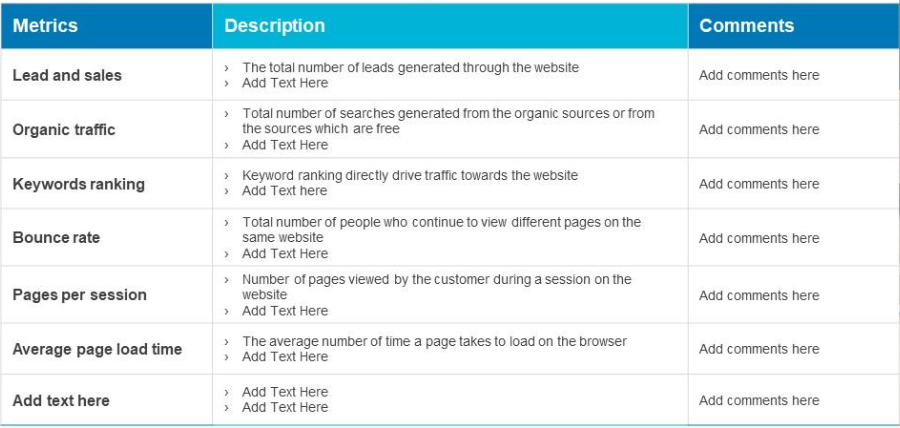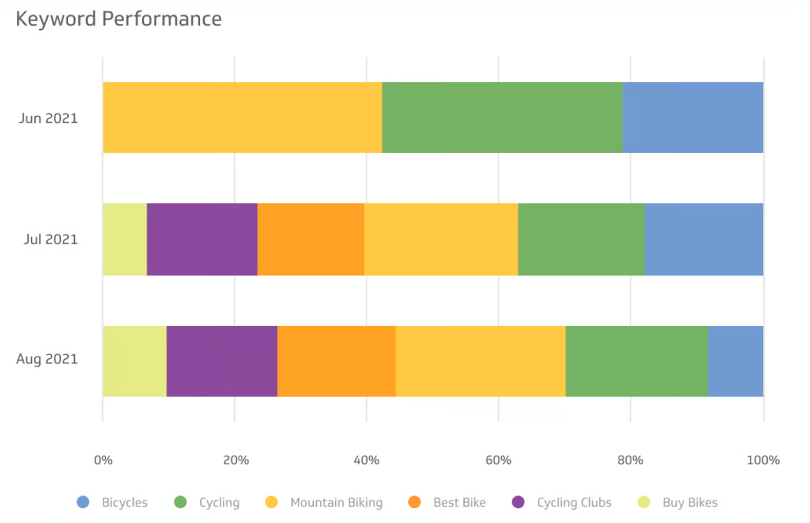Mastering keyword performance is essential for any digital marketing strategy. By tracking and measuring how your keywords perform, you unlock the secrets to driving more traffic, improving conversions, and boosting your online visibility. At Flying V Group, we offer the expertise and tools to analyze these metrics and optimize your marketing efforts for superior results.
Join Flying V Group, where we work relentlessly to ensure your digital marketing strategies are effective and ahead of the competition. Contact us today to discover how we can help enhance your keyword performance and propel your digital journey to new heights.
Key Metrics for Measuring Keyword Performance
Understanding your keyword performance can make a substantial difference in optimizing your online presence. Here are some key metrics that will help you track and evaluate how effective your keywords are:
- Keyword Rank: Check where your keywords stand compared to your competitors. This helps you gauge the effectiveness of your SEO strategies and adjust them to better compete in your industry.
- Search Volume: Look at the average number of searches a particular keyword receives. This metric gives you insight into the popularity and relevance of your keywords to your target audience.
- Click-Through Rate (CTR): Measure the percentage of clicks on your ads or organic listings compared to how often they are displayed. A higher CTR indicates that your keywords and ads are relevant and appealing to your audience.
- Cost Per Click (CPC): Monitor the cost you pay each time someone clicks on your ads in PPC campaigns. This will help you understand the financial efficiency of your chosen keywords.
- Conversion Rate: Focus on the percentage of users who complete a desired action, such as purchasing or signing up for a newsletter. This tells you how well your keywords drive potential customers to take actions that directly contribute to your business goals.
- Return on Investment (ROI): Evaluate the financial return you’re getting from specific keywords. This is crucial for determining the profitability of your keyword investments and making informed budgeting decisions for future campaigns.

Tracking these metrics ensures that your keyword optimization efforts reflect your market’s dynamics and effectively contribute to your overall business success.
Tools and Platforms for Tracking Keywords
When monitoring keyword performance, having the right tools and platforms at your disposal can significantly enhance your marketing strategies. Here’s how you can track and measure keyword performance effectively:
- Google Analytics: Use this to track your organic keyword performance. You can see which keywords drive traffic to your site, helping you understand what your audience is looking for.
- Google Search Console: This tool is essential for understanding your site’s organic search performance. It provides insights into the keywords generating impressions and clicks, allowing you to refine your SEO strategies.
- SEO Platforms (Ahrefs, SEMrush): These comprehensive tools offer deeper insights into keyword performance and competitive analysis. They help you track your rankings, analyze backlinks, and understand your competitors’ strategies.
- Keyword Tracker Tools (KW Finder, Moz): These platforms are designed to track keyword rankings across search engines and geographical locations. They provide valuable data that can help you optimize your content for better visibility.
- Social Media Monitoring Tools (BuzzSumo, Hootsuite): These tools are great for tracking your keywords’ performance on social media platforms. You can see how often your chosen keywords are mentioned and engage with your target audience more effectively.
Understanding and utilizing these tools will help ensure your keyword performance is always at its best. You can significantly enhance your visibility and engagement rates by monitoring and adapting to these tools’ insights.
Flying V Group excels at integrating these tools into a customized marketing strategy that fits your unique business needs. With our global team working around the clock, we implement these tools and monitor and optimize them to ensure your keyword performance maximizes your ROI. Let’s partner to supercharge your digital presence and achieve your desired success. Reach out to us today and see how we can make a difference!
Integrating Keyword Tracking with Business Goals
When optimizing your keyword performance, it’s crucial to ensure that the tracking aligns directly with your broader business goals, including revenue growth and overall business expansion. By integrating keyword tracking with your business objectives, you’re not just playing a numbers game—you’re strategically positioning your business for real growth.
Think of it this way: each keyword represents a potential customer’s pathway to your services or products. By analyzing the performance of these keywords, you can understand what your audience is looking for and how well your content meets their needs. This isn’t just about getting traffic; it’s about attracting the right kind of traffic that will drive your sales and help your business grow.
Using data from your keyword tracking efforts allows you to refine your marketing and content strategies continuously. For instance, if you notice that specific keywords are bringing a lot of traffic but not converting, you might need to reassess the corresponding content or the user journey on your website. Conversely, high-performing keywords that lead to conversions can inform the type of content you should produce more, helping you replicate this success.

By closely monitoring your keyword performance, you’re not just reacting to trends but proactively using data to steer your marketing efforts. This ensures that every piece of content you produce isn’t just seen—it’s effective and contributes directly to your business goals.
Remember, the ultimate aim is to make your marketing efforts visible and valuable to your growth objectives. So, make your data work for you, and watch how it transforms your approach to achieving and even surpassing your business goals.
Improving Keyword Performance
Improving your keyword performance is all about taking the right actions to boost the effectiveness of those keywords that aren’t pulling their weight. When you find specific keywords lagging in driving traffic and conversions, you should refine your strategies to elevate their performance.
Firstly, think about content optimization. You should ensure your content is relevant and rich with the keywords that matter most to your audience. But it’s more than just keyword stuffing. It’s about strategically placing your keywords—consider including them in titles, headers, and near the top of your articles. This way, you’re not just appealing to search engines but also keeping your content engaging and accessible for your readers.
Another critical aspect is the quality of backlinks. High-quality backlinks from reputable sites can significantly boost your keyword performance. They drive direct traffic and enhance your site’s authority and relevance in search engine algorithms. Focus on building relationships with credible sources that can provide backlinks that enhance your site’s credibility and visibility.
Concentrating on these areas can effectively improve your keyword performance. Remember, it’s about being strategic and mindful in your approach to content and backlinks. By doing so, you’ll see a marked improvement in your keywords’ performance, driving more traffic and conversions to your site.
Challenges and Considerations in Keyword Tracking
When assessing your keyword performance, it’s crucial to recognize and navigate specific challenges and considerations in keyword tracking. Here are some pivotal points to consider:
- Potential inaccuracies in data collection: Often, the tools you use to track keyword performance may not capture data comprehensively due to tracking limitations or misconfigurations. It’s essential to verify that your analytics tools are correctly set up and consider using multiple tools to cross-validate the data. This helps ensure that the insights you gather about your keyword performance are as accurate as possible.
- Evolving nature of search engine algorithms: Search engines frequently update their algorithms, which can significantly affect your keyword data. For example, what works well in ranking your keywords today might not be effective tomorrow. Stay informed about these changes and be prepared to adapt your strategies. Regular audits of your SEO practices help mitigate the impact of algorithm changes on your keyword performance.
- Difficulty in isolating variables: With so many factors influencing your keyword performance, it can be challenging to pinpoint what’s working and what isn’t. Factors like changes in market trends, competitor actions, and even seasonal fluctuations can cloud your analysis. It’s important to continuously experiment and analyze these variables to understand their impact on your results.
- Over-reliance on vanity metrics: It’s easy to get caught up in impressive-looking metrics that might not impact your business goals. Metrics like search volume and rankings are valuable but don’t always translate into success. Focus on meaningful metrics like click-through and conversion rates that tie directly to your business objectives.

Understanding and addressing these keyword-tracking challenges will better equip you to effectively measure and enhance your keyword performance. By staying vigilant and adaptable, you can continue refining your SEO strategies and achieving sustained success in your digital marketing efforts.
Unlock Your Digital Potential with Our Global Performance Marketing Team
In conclusion, understanding and optimizing keyword performance is essential for your digital success. Our team of global experts is dedicated to crafting tailored strategies that propel your business forward. Together, we’ll navigate the digital landscape, fine-tuning campaigns and maximizing ROI.
Trust in our process, from understanding your business to continuous monitoring and optimization. Let’s embark on this journey together, surpassing expectations and achieving milestones that once seemed out of reach. Join Flying V Group in harnessing the power of unity and shared success. Contact us now to unleash the full potential of your digital presence.
FAQs
What Is the Best Tool for Tracking Keyword Performance?
Google Analytics and SEMrush are popular choices. Both offer comprehensive insights into keyword performance, including search volume, competition, and ranking trends.
How Often Should I Check My Keyword Performance?
Check keyword performance weekly or biweekly. Regular monitoring allows timely adjustments to SEO strategies based on emerging trends and competitor actions.
Can Keyword Performance Impact My Overall Business Revenue?
Yes, keyword performance directly influences website visibility and traffic. Higher rankings for relevant keywords can drive more qualified leads and conversions, ultimately positively impacting revenue.
What Should I Do if My Keywords Are Underperforming?
Analyze keyword relevance, search volume, and competition. Optimize content, meta tags, and backlinks accordingly. Consider exploring alternative keywords or adjusting targeting strategies for better performance.
How Does Search Intent Affect Keyword Performance?
Understanding search intent is crucial for selecting relevant keywords. Align keywords with user intent—informational, navigational, or transactional—to enhance visibility and engagement. Meeting user needs improves click-through rates and conversion potential.






0 Comments